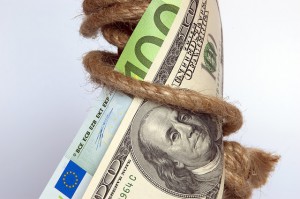Funny Picture to Send to a Scammer
20 Best Funny Internet Scams (Warning: These Stories Are Downright Ridiculous)
Disclosure: Your support helps keep the site running! We earn a referral fee for some of the services we recommend on this page. Learn more
 All of us have received an e-mail hoax promising the opportunity to make millions working from home. We've received begging emails asking us to donate money to fraudulent funds, and read fascinating (but false) stories designed to elicit a widespread response from the public. While many, truly damaging scams are designed to covertly steal hundreds of thousands of dollars from innocent people, this list is mostly comprised of those hoaxes that are just downright ridiculous.
All of us have received an e-mail hoax promising the opportunity to make millions working from home. We've received begging emails asking us to donate money to fraudulent funds, and read fascinating (but false) stories designed to elicit a widespread response from the public. While many, truly damaging scams are designed to covertly steal hundreds of thousands of dollars from innocent people, this list is mostly comprised of those hoaxes that are just downright ridiculous.
- Lonelygirl15: One of the most popular Internet hoaxes in recent years, the lonelygirl15 teenager named Bree turned out to be nothing more than an actress named Jessica Rose. The YouTube sensation assuredly broke many lonely hearts who thought they shared a special connection with the web cam princess, the show is still going strong with an average of 70 million viewers, all of whom (hopefully) now know that lonelygirl15 isn't real.
- Disney Hoax: Could you imagine receiving a real live e-mail from Walt Disney, Jr. himself? Well, we couldn't either, but enough people did to make this Disney hoax a real problem. The fraudulent e-mail claims to work with Bill Gates and Microsoft to try out a new e-mail tracing program. The e-mail asks people to forward the e-mail to as many people as possible, and "if it reaches 13,000 people, 1,300 of the people on the list will receive $5,000, and the rest will receive a free trip for two to Disney World for one week during the summer of 1999 at our expense." We wish.
- Show Your Bum Joke: According to Hoax-Slayer.com, this hoax "warns that a man supposedly conducting a survey may come to your door and ask to see your bum." While this hoax is more of a spoof of a hoax, we just had to include it on our list.
- Internet Wedding Scam: Irish and Scottish folk singer Marc Gunn posts on his website a warning for other musicians about the Internet Wedding scam. A person claiming to be a soon-to-be married man named Pitt Andre wanted to book Gunn's band at their wedding. Agreeing to pay the 50% deposit upfront, the scammer instead sent a check for nearly double the amount, and then asked for a refund making up the difference. A couple of days later, the man e-mailed Gunn to tell him the wedding was off, and that he wanted all of the money back. According to Gunn, the first check "seemed to have cleared" after three days, and his group sent back the $2500. Of course, the original check inevitably bounced, leaving Gunn and his group "miserable…and $2500 poorer."
-
 Citibank Scam: This scam is pretty tricky. Online banking sites often promise tight security settings and password-protected account access, but even top companies aren't immune to Internet scams. In 2003, the Citibank website was under siege from a scam artist that designed a pop-up, which "appears to be a Citibank page" and "comes up and asks you to verify your information," which then "goes to a server in Russia that has nothing to do with Citibank."
Citibank Scam: This scam is pretty tricky. Online banking sites often promise tight security settings and password-protected account access, but even top companies aren't immune to Internet scams. In 2003, the Citibank website was under siege from a scam artist that designed a pop-up, which "appears to be a Citibank page" and "comes up and asks you to verify your information," which then "goes to a server in Russia that has nothing to do with Citibank." - Nikki Leotardo: When the immensely popular HBO series The Sopranos planned its final episode during the summer of 2007, there was much speculation as to how America's favorite mobsters would end their run on television. After the finale, viewers were left hanging, scratching their heads over what could have happened during the blackout from several suspicious characters looming over the Sopranos' family dinner. A rumor started circulating on the Internet that the man standing at the counter was Nikki Leotardo, Phil's nephew who had been on the show before and who could have been out to kill Tony. As it turns out, the whole thing was just a joke, and Sopranos fans are still left in the dark about how the show really ended.
- Killer Bananas: In 2000, an Internet hoax about imported bananas containing flesh eating bacteria that "spread faster than the flu," according to Kathy Means, vice-president of the Produce Marketing Association. Despite efforts to squash the rumor, people panicked, inciting investigative stories in the LA Times and from the Knight Ridder news service.
- Neiman Marcus Cookie Hoax: Would you pay $250 for a cookie recipe? What if it came from Neiman Marcus? We hope that you answered no to both of those questions, but one woman claims to have been tricked into paying the absurd amount and then seeks revenge by sending the recipe out in an e-mail blast. As it turns out, Neiman Marcus never put its cookie recipe up for sale and now publishes the recipe on its website, free of charge of course.
- Money-at-Home.com: How great would it be to manage your own company from home by turning your computer "into a money-making machine?" Unfortunately, the scammers are the only ones making money with this system. An e-mail invites people to send them money so that they can receive "instructions on where to go and what to download and install on your computer" so that you can run the business and start making lots of money. Even if the instructions actually come, you also have to give the scammers access to your PayPal account, where they can control your online funds.
- Deodorant Causes Breast Cancer: Several years ago, a popular e-mail chain circulated the Internet claiming that antiperspirants caused breast cancer. Thankfully, experts debunked the ugly rumor, and women felt comfortable enough to continue using their deodorant.
- Don't Pump Gas on May 15: In May of 2007, an e-mail hoax pleaded with American drivers, "Don't pump gas on May 15!" The hope was that large oil companies would suffer great financial losses if millions of people refused to fuel up on one single day. An article on CNN reveals that "the chain e-mail urging the gas boycott has been around for several years, surfacing most years in the springtime" and that "many of the numbers in the e-mail are either misleading or flat out wrong."
- Bill Gates Hoax: Poor Bill Gates has found himself involved in another e-mail scam, this time with AOL. As with the Disney hoax, people are rewarded for passing along the chain e-mail in $5.00, $3.00, and $1.00 increments. No Disney vacation included in this one, though.
- ATM Security Hoax: Who needs 911 when you've got your trusty PIN number? This scam reports that if you need to call the police at an ATM machine, you can subtly make the call by typing in your PIN number backwards. The website Hoax-Slayer.com reports that the scam "stated that this method of calling the police is very seldom used because people don't know it exists," and assures customers that "the machine will still give you the monies you requested," despite having typed in your code backwards. Um, we don't think so.
- KFC Hoax: Despite what this Internet hoax wants you to believe, the Kentucky Fried Chicken franchise does not genetically engineer chicken-related organisms to maximize the amount of meat collected from each creature. This disgusting scam attempt to explain why Kentucky Fried Chicken is now referred to as just KFC, "because they can not use the word chicken anymore. Why? KFC does not use real chickens."
- Facebook millions: Well-meaning Facebook users forwarded a status update in 2015, in the hope that Mark Zuckerberg would share his fortune with users of the site. This was outed as a hoax within days, but not before the fake promise had spread like wildfire all over the site.
- The Helius Project: This popular scam is still believed by many people to be concrete evidence that intelligent aliens do exist. The Helius Project pretends to originate from "an alien species" trying to reach out to humans via the Internet. Where are Mulder and Scully when you need them to debunk your online alien rumors?
- "Send An Email Ad to 10,000 Opt-in Subscribers": Number 7 on the "Top 10 Internet Marketing Scams" list from the Real Estate Marketing Tools blog involves a scam that tries to convince innocent people to engage in illegal marketing tactics by sending advertisements to allegedly opt-in e-mail clients. Instead of falling for one of these scams, the author advises readers to start an e-mail campaign themselves, because "that way, you will know for sure that they are opt-in, and you will be able to manage the results."
- 419 Scam: This infamous network of scams is also known as the Nigerian Scam because of its West African origins. About.com reports that "in every variation" of the hoaxes, "the scammer is promising obscenely large payments for small unskilled tasks," like paying legal and transfer fees out of your own pocket. There are now self-proclaimed scam busters who try to play 419 scammers at their own game.
- Snowball the Monster Cat: You wouldn't believe a photo of an oversized cat if it was published on the front cover of National Enquirer, would you? If that's the case, we're wondering why so many people believed the picture of an 87-pound monster cat that surfaced on the Internet. Unbelievably, the photo was even talked about on The Tonight Show with Jay Leno and Good Morning America. Supposedly, the cat's mother was rescued after being found "abandoned near a Canadian nuclear lab" in Canada; however, the cat's owner admitted to doctoring the photo and starting the hoax.
- Dead Fairy Hoax: "If you believe in fairies, then clap your hands!" As with Tinker Bell, clapping your hands won't bring these little garden fairies back to life, probably because they never existed. An Englishman created and photographed small models of dead and mummified fairies to trick people into believing that fairies once existed. After e-mailing the pictures to friends as an April Fools' joke, fairy lovers all over the world continue to believe that the photos are real, "even though [the] creator has long since admitted to the hoax," according to Snopes.com.
If you suspect an e-mail of trying to solicit money or personal information from you, delete it immediately or report it to the Internet Crime Complaint Center, which is a federal organization comprised of a joint partnership with the FBI and the National White Collar Crime Center. While some of these hoaxes seem altogether ridiculous, internet scamming is no joke, and some of the people who have fallen for scams have been cheated out of thousands of dollars.
Source: https://html.com/blog/20-best-funny-internet-scams-stories/
0 Response to "Funny Picture to Send to a Scammer"
Post a Comment